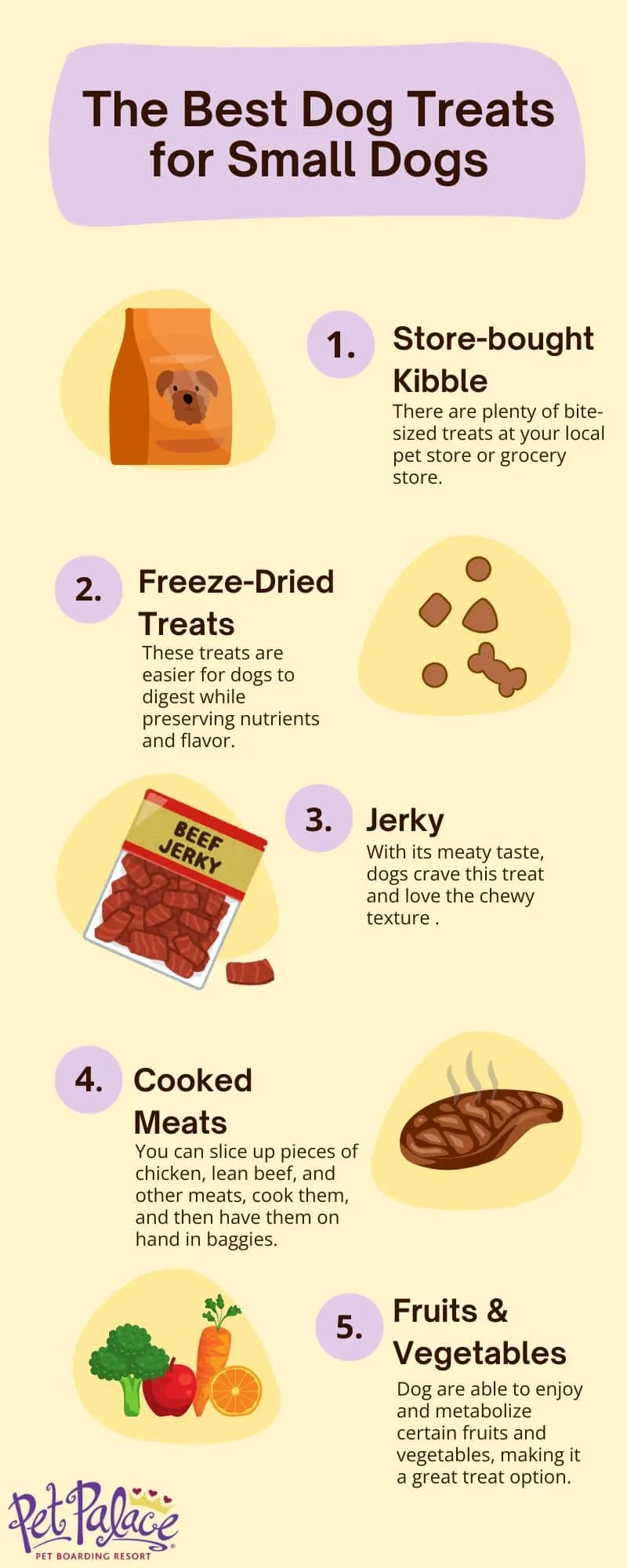Welcoming a small dog into your home brings immense joy, and ensuring their well-being is a top priority for any dedicated pet owner. When it comes to rewarding your tiny companion, choosing the right Healthy Dog Treats For Small Dogs is crucial. Unlike their larger counterparts, small breeds have unique dietary needs and physical characteristics that require careful consideration regarding treat size, calorie content, and nutritional value. Understanding these factors will help you make informed decisions, ensuring your furry friend enjoys safe, beneficial, and delicious snacks.
This comprehensive guide will delve into the best practices for selecting healthy dog treats, focusing on nutrition, appropriate sizing, managing caloric intake, identifying potential allergens, and even leveraging treats for dental health. By the end, you’ll be equipped to pamper your pint-sized pup with treats that contribute to their overall health and happiness.
Nutritious Choices for Your Small Companion
Providing your small dog with the best starts with meeting their dietary requirements. When looking for healthy dog treats for small dogs, a variety of options can offer both flavor and essential nutrients. It’s always wise to ensure any treat you select is suitable and safe for canine consumption.
One of the simplest options is store-bought kibble designed for small breeds. Many major brands offer bite-sized biscuits and treats that are specifically formulated for smaller mouths and digestive systems. These are often backed by regulatory bodies, providing a convenient and reliable choice for a quick reward.
Freeze-dried treats are another excellent category of healthy dog treats for small dogs. Companies like Sojos, Stella & Chewy, and TruDog offer options where the freeze-drying process preserves nutrients and flavor while removing moisture, making them easily digestible. These nutritionally dense treats also boast an impressive shelf life, remaining fresh for months or even years unopened, and typically 30-60 days after opening.
Dogs of all sizes, including small ones, often adore jerky for its rich, meaty taste and satisfyingly chewy texture. Brands such as Merrick, Blue Buffalo, and Wellness Core provide various jerky options. Its processed and preserved nature also contributes to a good shelf life, making it a convenient treat to have on hand.
For those who prefer a more homemade approach, cooked meats like chicken or lean beef, sliced into small pieces, make fantastic healthy dog treats for small dogs. Many pet owners find these especially useful for training their pups or simply as a special reward. Always ensure the meat is thoroughly cooked and unseasoned to avoid any ingredients that could be harmful to dogs.
Finally, certain fruits and vegetables can serve as refreshing and healthy snacks. Options like carrots, green beans, blueberries, sweet potatoes, apples (without seeds), peas, and bananas are often enjoyed and can be safely metabolized by dogs. However, extreme caution is necessary: always ensure any produce is cut into small, chewable pieces, and never give your dog onions, grapes, or raisins, as these can be highly toxic. It’s always best to consult your veterinarian about appropriate fruit and vegetable choices to ensure everything you select is safe.
 A small dog happily eating a treat, emphasizing nutritious options.
A small dog happily eating a treat, emphasizing nutritious options.
Understanding Size: Preventing Choking Hazards
When searching for the perfect healthy dog treats for small dogs, one of the most critical factors is size. Small breeds simply cannot handle the same large, hearty treats designed for bigger dogs. Modifications are often necessary to ensure treat time remains a safe and enjoyable experience.
Many dog treats on the market are indeed crafted with larger breeds in mind, emphasizing durability and a long-lasting chew. While these qualities are excellent for big dogs, they can present significant choking hazards or digestive issues for smaller pups. To prioritize your dog’s safety, consider the following:
- Opt for treats specifically designed for small dogs: Look for packaging that indicates the treat is suitable for “mini,” “small,” or “toy” breeds. These are already portioned appropriately.
- Cut larger treats into smaller bites: Even if a treat is generally safe, slicing store-bought items, cooked meats, fruits, or vegetables into pea-sized or smaller pieces will prevent your pooch from struggling to chew or swallow, significantly reducing the risk of choking.
- Prioritize soft and chewy treats: In some instances, softer, chewier treats may be a better option than harder ones, especially for very small breeds or dogs with sensitive teeth. This makes chewing easier and safer.
- Choose smaller, thinner hard treats: If you prefer hard treats, select those that are thin and petite, such as certain small biscuits. Hard treats can still contribute to good oral hygiene for small dogs, but their size must be appropriate.
Beyond Nutrition: Other Key Considerations for Small Dog Treats
While nutrition and size are paramount, several other factors contribute to selecting the best healthy dog treats for small dogs. Keeping these in mind will help you tailor your choices to your pet’s individual needs.
Caloric Intake Awareness
Small dogs have a faster metabolism but require fewer calories overall than their larger counterparts. Overfeeding, even with healthy treats, can quickly lead to excess weight and associated health problems like mobility issues and diabetes. Always check the caloric information on treat packaging and cross-reference it with your dog’s size and activity level. Consulting your veterinarian for guidance on daily caloric needs and treat allowances is highly recommended. For instance, if your dog needs a specialized diet due to pancreatitis, understanding their overall calorie intake is even more critical.
Allergy and Sensitivity Considerations
Just like humans, dogs can develop allergies or sensitivities to certain foods and ingredients. Common culprits include beef, dairy, wheat, chicken, and eggs. If you suspect your dog has food allergies, or if certain foods tend to upset their stomach, carefully examine treat labels for ingredients that might cause an adverse reaction. Introduce new treats gradually and monitor your dog for any signs of discomfort or allergic reactions, such as itching, digestive upset, or skin issues. If your small dog has a sensitive stomach, choosing easily digestible treats is key.
Dental Health Benefits
Oral hygiene is vital for all dogs, and some treats are specifically designed to promote good dental health. Look for treats that help clean teeth, reduce plaque and tartar buildup, and freshen breath. These can be a valuable addition to your dog’s routine, complementing regular dental care. For small dogs with existing dental issues or sensitive gums, softer dental treats might be more comfortable and equally effective.
Individual Preferences
Ultimately, every dog is unique. What one small dog adores, another might turn its nose up at. Be prepared to engage in some trial and error to discover your dog’s favorite healthy treats. Observe their reactions, note what they enjoy most, and adjust your selection accordingly. Finding treats they genuinely love makes training and rewarding them a much more positive experience for both of you. For example, some small breeds like French Bulldogs might have specific dietary needs that influence treat choices.
 A close-up of a small, happy dog enjoying a treat.
A close-up of a small, happy dog enjoying a treat.
Conclusion: Ensuring a Happy and Healthy Treat Time
Choosing the right healthy dog treats for small dogs requires careful consideration of various factors, from nutritional content and appropriate sizing to calorie management, allergy awareness, and dental health benefits. By making informed decisions, you can ensure that every treat you offer contributes positively to your small dog’s overall well-being. Always prioritize safety by selecting appropriately sized treats and being mindful of potential choking hazards. When in doubt about specific dietary needs or health concerns, consulting your veterinarian is always the best course of action. With a little thought and care, treat time can be a joyous and healthy part of your small dog’s life. Explore more articles on Dog Care Story for additional tips and advice on caring for your beloved pets!
